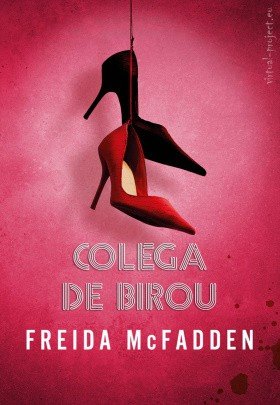Then Endi was called back for “Send in the Clowns” and they cheered, they just adored her, and finally she stood at ease, ten times more comfortable than she’d been at the amateur hour, but when the song was coming to a close and the old guy sitting next to me blurted, “Don’t bother. They’re here,” Endi and I caught eyes and we both had to look away fast to keep from cracking up.
After the big “All You Need is Love” finale, the elderly were gently escorted out, and the nurses and the performers and I were treated to some not-that-terrible square-shaped cafeteria pizza. As Endi was being congratulated by all, I got a text from Double Fry, almost like telepathy: Beatles double feature at the Vista 4pm? I showed this to Endi and Jensen and soon the four of us were sitting in the Jetta parked up the street from the movie house, passing around a joint like a pack of teenagers.
“Be careful, guys,” Double Fry warned, “this is some really strong stuff, nothing like what you citizens get at the dispensary.”
Jensen said, “Man, you ain’t kiddin’. I haven’t done this in years—what a treat to meet all you guys.”
“You’re in our gang now,” Fry said. “Going to this movie is the initiation.”
Just then a cop rolled by and the four of us froze up. Double Fry whispered, “Pigs,” and Jensen said, “Duck.” As the cop car cruised past, Endi said, “Geese?” and we burst into unstoppable laughter. Then Fry pointed at the car clock. “Oh shit, we’re late.”
We bustled out, passed out Altoids, and turned the corner, last in line for tickets. Up on the marquee: Beatles Forever.
“So much fun,” Endi said.
“Not for Pete Best,” Fry said dryly and the rest of us groaned.
At the concession stand, Jensen weighed Libra hands. “Raisinets or Kit Kat? Kit Kat or Raisinets?”
I said, “No sane person can decide on that.”
Endi said, “Will you two get out of my way please,” and pushed past to order a huge popcorn.
“See?” Jensen said to me. “They get a taste of fame and all of a sudden it’s outta my way.”
Soon the four of us were down the sticky aisle, grabbing seats in the theater, with Jensen nudging Fry out of the way to sit next to Endi—I chagrined, took her other side, and Fry frowned. Now we were up close with a coming attraction for Andy Warhol’s Frankenstein in 3-D up on the big screen, but without the glasses it was more splotchy than scary. We settled in, Fry, then me, then Endi between me and Jensen, and he angled toward us, raising his two hands in surprise.
“Ta-dah!”
He’d bought the Kit Kats and the Raisinets.
Endi said, “God bless you.”
The movie started and we all leaned back to face the giant black-and-whiteness and then there they were—George, John, and Ringo, on the run from a pack of rabid teenybopper girls, and they’re running, laughing, George falls, then Ringo slips, or maybe Ringo kneels to pick George up, you couldn’t tell, but they’re moving fast—and here’s Paul and now they’re hiding in phone booths, photo booths, climbing the walls—the wanted guys—and the girls, these supercute messengers of crazed yearning, are screaming and chasing them against this music of ridiculous happiness, the exuberance, the ecstasy jamming up everybody’s heartbeats.
From the corner of my eye, I saw Double Fry stunned into ecstasy by the screen, then I looked to Endi, also mesmerized, her beautiful mouth open and breathless, and then I saw Jensen, entranced, stupefied, his eyes welling up and so were mine; I got it, liked him even more for this flash of vulnerability as I leaned back to take in the black-and-white tidal wave of joy and brotherhood before us—almost too much for a human to bear.
The popcorn box was passed, candies exchanged hands, and the movie on the screen maintained this shimmering beauty for an awfully long time, and then it kind of went sideways, cuckoo, but that didn’t matter—the music was all that mattered. During “I Should Have Known Better,” Endi slipped her hand under mine, intertwined our fingers, and I went flush with a happiness I had not thought possible for a very, very long time.
When the credits rolled, she remembered that she had to get back to Ziva’s to make dinner, so we excused ourselves and left Fry and Jensen to watch Yellow Submarine as we headed back to my car.
Cruising home, she rolled down the windows and let in the nightfall breeze. “That…was such a fun day.”
“You guys were superstars up there.”
“Well—he knows what he’s doing. It’s actually a big job.”
“He really likes you, ya know.”
“Yeah, I know.” She turned to me. “He kind of asked me out.”
“Oh. Really.”
“When you went to go help with the pizzas.”
“I see.”
“I mean, he wasn’t gross about it or anything—he just said he’d like to get to know me better.”
“And…what’d you say?”
She kept her eyes on me, gave me a cautious smile. “I told him I had feelings for someone else.”
I got caught in her eyes for one sec too long, then looked back at the road. “Good answer.”
“Anyway,” she added, “I don’t do the very older guy thing.”
“Very funny. I am glad you let him down easy, though. He’s a good egg.”
“Yeah,” she said, “I tell ya, working with the elderly is rough.”
“How do you mean?”
“It’s hard to give everything you’ve got to people you know are going away.”
When we pulled up to Ziva’s, Endi reached for her guitar and said, “I can’t believe you actually got me to do that.”
“It was so worth it.”

























